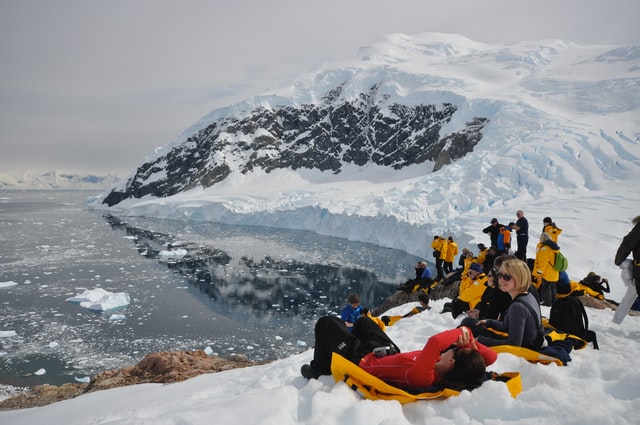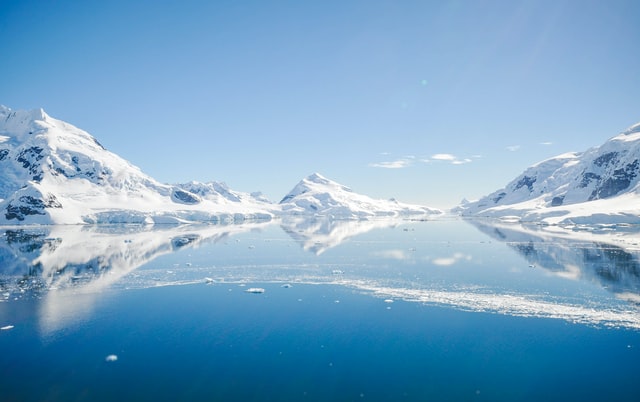We only have one life, and a well-lived life should include a bucket list of experiences to try. Scuba diving is one of the activities that everyone should try. But how can scuba diving in cold water be exciting? Dive beneath the ice in Antarctica’s untouched paradise. The difficulties await you in the cold water and beneath the deep freezing water, but isn’t that what life has to offer? To try new things that are worth experiencing.
Antarctica is the world’s coldest and least traveled continent, with its most biodiverse ecosystems! The continent is made most of it with ice, making it more appealing to visit. This natural sight attracts a lot of people who are all searching for a one-of-a-kind and stunning experience.
You will be able to see the truth beneath the ice, which will be an unforgettable experience. Get to see wonders that few of us will ever see. To visit a continent that many of us cannot or will not stay. Diving into the deepest part of the world, particularly Antarctica, will go down in your diary as one of the most unforgettable experiences you’ve had.
This brief travel guide would provide necessary data about water sport in Antarctica called scuba diving. It contains everything you ought to discover about visiting one of the bizarre and most interesting parts of the planet, from what to expect to see to your equipment and safety.
Ways and Tips In Getting Into Scuba Diving In Antarctica
The quickest and most accessible route to Antarctica is via the tip of South America for 98 percent of travelers, but there are alternative routes to get to the white continent. Usually, sailing was the only way to get to Antarctica, and it is still the most popular method, but it is now also possible to get there through a short 2-hour flight for those with limited time.

Tips to Keep in Mind:
- Before arriving, you must have your international diving certificate, diver’s logbook, and a note from your doctor (no longer than two years) certifying that you are physically fit to perform scuba diving. It may appear excessive, but safety is critical when far from immediate medical care.
- Individuals who are beginners should have a company that is well experienced for them to be guided accordingly and be in help in case of emergency.
- Assess your regulator to see if it is sealed; some can be filled with a seal kit, while others are shipped pre-sealed. To avoid free flow, ensure your regulators are serviced for cold water. Standard regulators are inefficient in frigid temperatures since they do not operate effectively.
- It is only advisable to dive 60 feet above the surface (20 meters)
- The stabilizing jacket is required to achieve neutral buoyancy underwater. You can’t dive if you don’t have one.
- In cold water, divers should expect to expend more energy, consume more air, and fatigue more quickly. Wear 2-3 layers of thermal undergarments (depending on your suit) to stay warm. It is also necessary to wear a dry suit or 7mm wetsuit gloves.
- The average dives per day will be determined by the weather and ice conditions in the area.
Standard Preparation Equipment
It would be best to use equipment that you are familiar with and is being used most often and tested. It is strongly advised that you complete at least 4-5 dives with all of the equipment you will be using, as this will allow you to fine-tune and address any concerns.
The standard equipment is as follows:
- Mask, snorkeling equipment, and fins
- Pressure gauge for submersibles
- A depth gauge or a wristwatch
- Torch, compass, and knife
- The belt for carrying weights
Work As A Scuba Diver In Antarctica
Because scuba diving in Antarctica requires professional guidance and training, you can work perfectly as a scuba diver guide or trainer if you are well experienced and have international certificates in scuba diving. But some clients are meticulous enough to require more skills and experience to train them into the unknown part of Antarctica’s deep cold diving area. Scuba diving varies but expects to earn between $500 and $1000 per person. It depends on the terms and duration of the voyage.

Pingback: Preparation for Winter Diving: Essential Equipment for Cold-Water Diving - Scuba Diving Corner